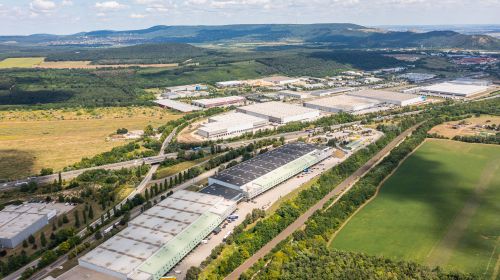Russian worries for the world of finance
Stock market reportThe end of November still provided some hope that investors (supported by some rather promising economic data and macroforecasts) would start shopping on a wave of Christmas optimism. However, this turned out not to be the case, mainly due to the situation in Russia. The sudden decline in the value of the ruble (in 2014 the Russian currency lost even more than the Ukrainian hryvnia) also pulled the Russian stock exchange down. Over 2014, the RTS index (the index of 50 largest companies listed on the Moscow trading floor) lost over 45 pct – and the post-Christmas week saw even more dramatic developments. A huge hike in Russian interest rates (from 10 to 17 pct) to protect the ruble did not achieve much, but the narrow range of resources the Russians have at their disposal to handle this crisis is generating anxiety around the globe. The low price of oil is doing nothing for global investors’ evaluation of Russia. The selling off of assets beyond the eastern border has not passed without an impact on the Warsaw trading floor. Negative external factors traditionally drive declines stronger than positive factors drive any rebound from this. And that was also the case this time, when the indexes the world over recovered from the losses resulting from the Russian problem with just a very short Santa Claus Rally, which was noticeable even in Russia. This did not help the WSE significantly. And this was how not such a good year on the Warsaw trading floor finished – the broad market index had only gained 0.3 pct and the WIG20 had lost over 3.5 pct. It is worthwhile juxtaposing this with forecasts from a year ago, when even conservative forecasts predicted that the WIG20 would grow by 5 pct and there were no shortage of predictions that the WIG would reach 60,000 points. But it only managed to peak at 55,000 back in September. In the light of this, it is difficult to make responsible forecasts for 2015, but it is possible, however, to outline the conditions in which investors will be making decisions to sell or buy. The forecasts for 2015 are for faster global economic growth than in 2014, even though such estimates have been lowered in the last few weeks. The falling price of oil should suppress inflationary tendencies, which when factoring in the growing economy means that the low interest rates – high octane fuel for stock exchanges – should remain unchanged for longer. The geopolitical situation, mainly in Ukraine and the Middle East, will continue to be a risk factor, even though the improving economic conditions should have a positive influence on investors’ moods. The same should be true of Poland and the WSE. Based on the current data, analysts are stressing that the economy is balanced and historically low interest rates could work in favour of the WSE, by encouraging, for example, households to invest their savings in investment funds at the cost of bank deposits. On the other hand, following the changes in the law, pension funds will be given the opportunity of investing more abroad. MLP’s performance was the stand-out among developers. The good economic climate in the sector and the company’s burgeoning contract portfolio have been appreciated by investors. The share price of Echo Investment also increased in the last few weeks of the year. The company recently obtained a loan of PLN 700 mln for its development programme, but it is set for ownership changes. A block of 46 pct shares owned by Michał Sołowow could be purchased by Griffin Real Estate. American fund Starwood fund have also been interested, but they have been unable to reach an agreement with the owner of Echo. But there was a distinctly red hue to the share prices of other development firms. Polnord as well as foreign companies such as Warimpex and Orco lost a lot of ground. Among the construction companies it is worth highlighting Budimex once again, which reported the signing of its latest contracts (including the construction of the Bełchatów ring road and work on the reinforcement of the Baltic seashore). In an interview for PAP, the president of Budimex announced that the company should maintain its 2015 revenue at a similar level to 2014, but he hoped for higher profitability in the construction segment. The share price of Mostostal Warszawa, which is streamlining its group having sold Mostostal Puławy for over PLN 60 mln in December, also went up. This was the third company sold this year by the group, owned by Spanish conglomerate Acciona. Polimex-Mostostal finished its restructuring at the end of 2014. According to the president of the former giant, Maciej Stańczuk, the company now also wants to focus on securing new contracts in 2015, making use of its agreements with creditors. It has announced a consolidation of its shares, which will make it possible for the firm to leave the group of ‘grosz’ companies that are not very highly rated by investors. ν (Mir)
Neighbours seeing red
The turbulence in Russia meant that December was not marked by any Christmas growth in terms of share prices. The BUX index lost over 3 pct, sinking to its lowest level since March 2014. The losses were slightly made up for just before Christmas. The smallest of the big three CE stock exchanges – the PX50 index in Prague – lost almost 5 pct in December (compared to a fall of 4 pct for the WIG 20). The BUX suffered its worst result for the entire year, losing more than 10 pct.





















































